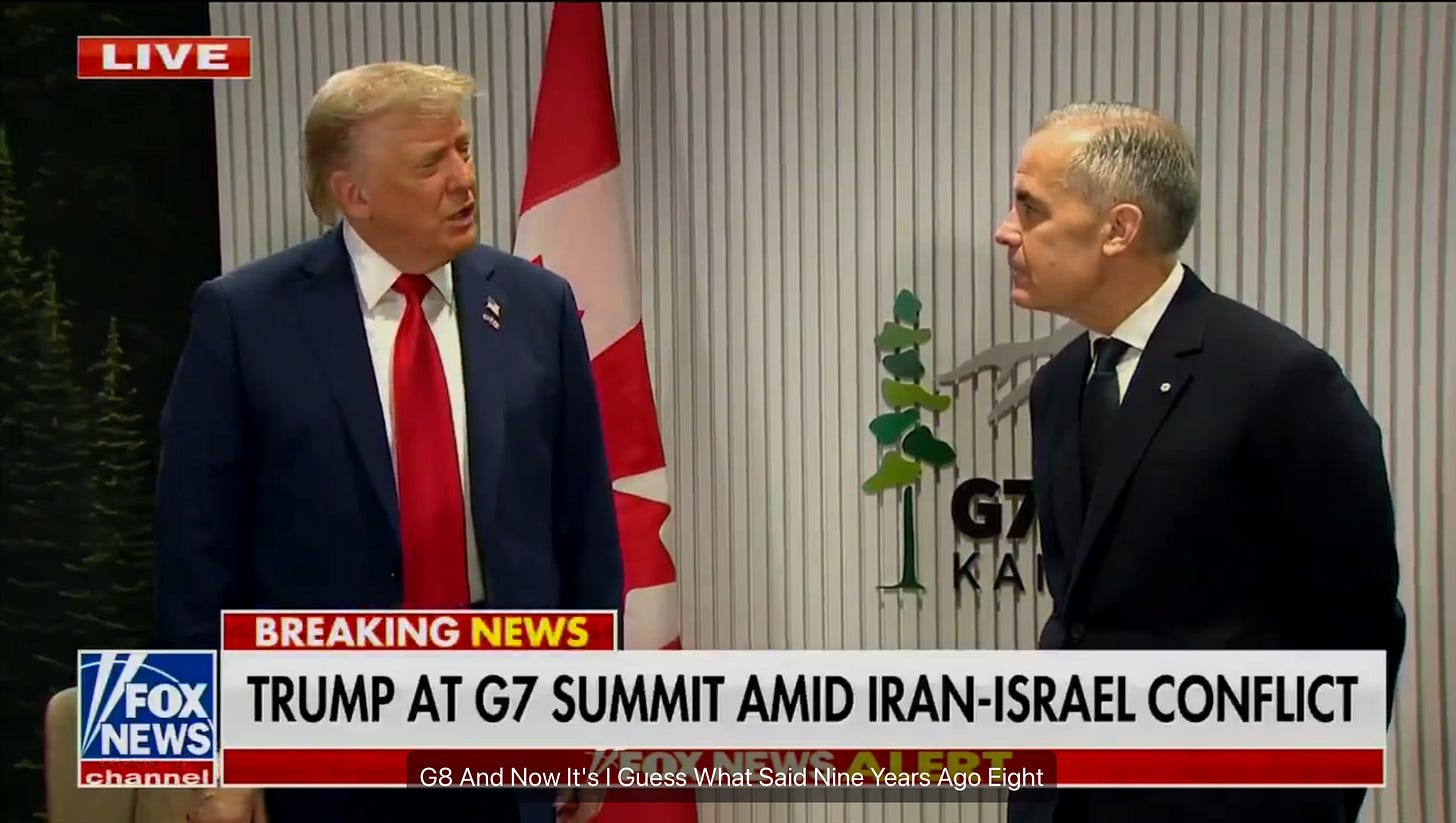The "Insult" That Launched a War? Trump's G7 Narrative Challenges Reality
At the G7 Summit, President Trump offered a striking explanation for a global conflict. Here's why reducing war to a personal
DC DAILY LETTER | June 17, 2025
By RL, Founder & Editor
The G7 Summit in Canada was supposed to be about uniting global democracies to tackle pressing issues. Instead, President Donald Trump, speaking ahead of the official proceedings, delivered a soundbite that cut through the diplomatic niceties with the force of a geopolitical earthquake: Russia's war, he asserted, was born from Vladimir Putin feeling "insulted" at being expelled from the G8.
"You wouldn’t have this war right now if you had Russia. That was a mistake," Trump reportedly said. "Putin talks to me — he doesn’t want to talk to anyone else. He feels insulted because they threw him out of the G8. And I get it — I would’ve felt insulted too. So would you. Anyone would." He even added a jab at his host: "Trudeau convinced one or two people, and Russia was thrown out. And I can tell you: Putin wasn’t thrilled about it."
This statement isn't just a casual remark; it’s a profound reinterpretation of recent history and international aggression, delivered at a forum of leaders committed to opposing that aggression. At DC DAILY LETTER, we believe in cutting through the noise to deliver the real story. And the real story here is that attributing a devastating, large-scale war to a personal slight dramatically simplifies, and arguably distorts, the complex realities of global power.
More Than an Insult: A Strategic Calculation
To suggest that Putin launched a war of expansion because he felt personally "insulted" by a multilateral group of nations is to reduce a strategic geopolitical calculation to a playground spat. Russia's 2014 annexation of Crimea and subsequent destabilization of Eastern Ukraine, which led to its suspension from the G8, was not a knee-jerk reaction to a perceived social slight. It was a deliberate act of aggression, violating international law and national sovereignty, driven by long-standing imperial ambitions and a desire to undermine Western alliances.
To cast this as an issue of wounded pride is to ignore the documented evidence of Russia's military build-up, its hybrid warfare tactics, its long-term objectives in its near abroad, and Putin's publicly stated grievances about NATO expansion and Western influence. Wars of this scale are born from geopolitical strategy, resource control, and ideological clashes, not merely a bruised ego, however powerful the individual.
The Peril of Personal Diplomacy
Trump's assertion that "Putin talks to me — he doesn’t want to talk to anyone else" is equally telling. While personal relationships between leaders can sometimes smooth diplomatic paths, this specific claim, made publicly at a G7 summit, undermines the very essence of multilateral diplomacy. It suggests that complex international conflicts can be resolved through exclusive one-on-one dialogues, rather than through collective pressure, established alliances, and adherence to international norms.
This framing risks alienating allies who have stood united against Russian aggression, implying their diplomatic efforts are futile or unwelcome by Moscow. It also sends a dangerous message to adversaries: that personal favor, rather than adherence to international law, might be the preferred currency of negotiation. At a G7 summit, where leaders are actively seeking to present a united front, such a narrative can only serve to sow discord and weaken the collective resolve.
Undermining Allies, Reshaping Reality
The direct criticism of Prime Minister Trudeau, blaming him for Russia's G8 expulsion, further highlights a willingness to undermine allies for the sake of a personal narrative. It reframes a principled stand by democratic nations into a petty squabble instigated by one leader. This kind of rhetoric erodes trust and makes it harder for the G7 — and indeed, broader alliances like NATO — to function effectively in challenging times.
Ultimately, President Trump's G7 remarks offer a startlingly simplified and self-referential explanation for a major international conflict. It suggests that a global crisis, marked by immense human suffering and geopolitical instability, is merely the fallout of a personal slight to one man. Such a perspective not only misrepresents history but actively discourages the kind of robust, collective, and principles-based diplomacy necessary to address the root causes of conflict.
At DC DAILY LETTER, we believe Washington's actions and words reverberate globally. When the U.S. President offers such a narrative on the world stage, it’s not just an opinion; it's a statement that shapes perceptions, influences policy, and demands scrutiny. We will continue to track the real impacts of these words, both in the halls of power and on the global stage.


